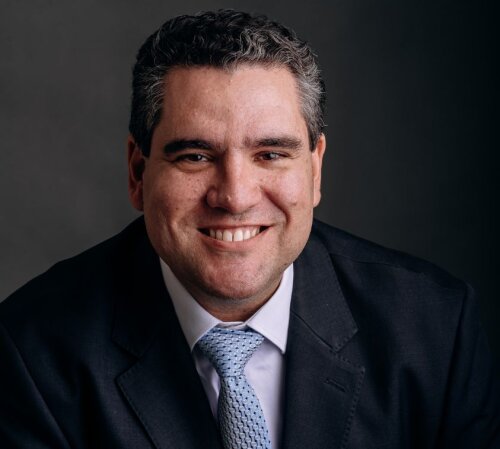Best Landlord & Tenant Lawyers in Praia Grande
Share your needs with us, get contacted by law firms.
Free. Takes 2 min.
Free Guide to Hiring a Real Estate Lawyer
List of the best lawyers in Praia Grande, Brazil
About Landlord & Tenant Law in Praia Grande, Brazil
Landlord and tenant law in Praia Grande, a vibrant coastal city in the state of São Paulo, Brazil, is primarily governed by federal legislation with some local regulations. The most significant law is the Lei do Inquilinato (Tenancy Law), known as Law 8.245/1991, which outlines the rights and responsibilities of landlords and tenants across Brazil. This law applies to both residential and commercial leases within Praia Grande. While it sets the general rules, local ordinances can also impact aspects such as property maintenance standards and municipal taxes. Understanding these regulations is crucial for peaceful and legal occupancy or property leasing in the region.
Why You May Need a Lawyer
Engaging a lawyer specialized in landlord and tenant matters can be essential in several situations. Common scenarios include rental disputes over unpaid rent, disagreements on property damage, contract terminations, and eviction processes. Landlords may seek legal advice to safely draft or review contracts, handle problem tenants, or recover outstanding payments. Tenants can benefit from legal support when facing eviction notices, contesting unfair charges, or ensuring their rights are upheld during the leasing process. Given the legal complexities and potential financial consequences involved, professional legal guidance helps to prevent or resolve conflicts efficiently.
Local Laws Overview
The Lei do Inquilinato (Law 8.245/1991) is the main statute governing rental relationships, supplemented by the Brazilian Civil Code and municipal regulations in Praia Grande. Key aspects include:
- Leases must generally be in writing and include specific terms such as rent amount and duration.
- Landlords and tenants both have maintenance obligations over the property. Structural repairs are usually the landlord’s responsibility, while everyday upkeep falls to the tenant.
- Security deposits are allowed but limited to three months’ rent.
- Rent increases are regulated and must adhere to agreed indexing mechanisms or legal limits.
- Eviction processes must follow strict legal steps, ensuring the tenant’s right to defense.
- Local laws and building codes may add particular requirements regarding safety, utility connections, and municipal taxes (for example, IPTU).
Complying with these rules is essential for both parties to avoid disputes and legal penalties.
Frequently Asked Questions
What are my rights as a tenant in Praia Grande?
Tenants have the right to a safe and habitable property, privacy, and proper notice before the landlord enters. They also have the right to receive a receipt for payments and access to a written contract outlining all lease terms.
Can landlords evict tenants for any reason?
No, evictions must follow a formal legal process and are only permitted under specific conditions such as non-payment of rent, contract violations, or the landlord’s need for the property. The tenant must be notified in advance and has the right to defend themselves in court.
How do I handle a rent increase?
Rent increases must follow the guidelines specified in the rental agreement or be based on a recognized inflation index. Arbitrary or excessive increases are not allowed and can be contested legally.
What is the maximum security deposit allowed?
Brazilian law limits security deposits to the equivalent of three months’ rent. The deposit should be returned at the end of the lease if there are no outstanding debts or damages.
Who is responsible for repairs?
Landlords are responsible for structural repairs and issues that make the property uninhabitable. Tenants are responsible for day-to-day maintenance and repairs caused by their use.
What are the rules for breaking a lease early?
Tenants may terminate a lease early by paying a penalty, usually defined in the contract. However, if transferred by an employer to another municipality for work, tenants may terminate the lease without penalty, given proper notice.
Can a landlord refuse to renew my lease?
Landlords are not required to renew a lease once it expires, provided they give proper notice. However, refusal cannot be based on discriminatory reasons.
Am I required to register the lease contract?
Registering a lease at the Registry of Deeds (Cartório) is not mandatory but is recommended, especially for longer contracts, to protect the rights of both parties.
Are utilities included in rent?
Unless specifically outlined in the contract, utilities are usually not included in the rent. Tenants are typically responsible for paying for water, electricity, and gas.
Where can I turn for help if a dispute arises?
You can seek mediation through the local consumer defense body (Procon), approach the Small Claims Court (Juizado Especial Cível), or hire a specialized lawyer for legal representation.
Additional Resources
If you require further information or assistance regarding landlord and tenant matters in Praia Grande, consider reaching out to these organizations:
- Procon Praia Grande: Municipal consumer protection agency offering guidance and dispute mediation services.
- OAB Praia Grande: The local chapter of the Brazilian Bar Association, which can refer you to qualified landlord and tenant attorneys.
- Juizado Especial Cível de Praia Grande: The Small Claims Court, responsible for handling minor property and rental disputes.
- Municipal Housing Department (Secretaria de Habitação): Provides information on housing policies and tenant support programs.
Next Steps
If you need legal assistance related to landlord and tenant matters in Praia Grande, begin by gathering all relevant documents such as contracts, payment records, and correspondence. Assess the issue to determine if it is something that can be resolved amicably with the other party. If not, consult with a specialized lawyer or visit the local Procon office to understand your legal options. In urgent matters or if facing eviction, seek legal support immediately to protect your rights and interests. Organizing your documentation and acting promptly increases the likelihood of a favorable outcome.
Lawzana helps you find the best lawyers and law firms in Praia Grande through a curated and pre-screened list of qualified legal professionals. Our platform offers rankings and detailed profiles of attorneys and law firms, allowing you to compare based on practice areas, including Landlord & Tenant, experience, and client feedback.
Each profile includes a description of the firm's areas of practice, client reviews, team members and partners, year of establishment, spoken languages, office locations, contact information, social media presence, and any published articles or resources. Most firms on our platform speak English and are experienced in both local and international legal matters.
Get a quote from top-rated law firms in Praia Grande, Brazil — quickly, securely, and without unnecessary hassle.
Disclaimer:
The information provided on this page is for general informational purposes only and does not constitute legal advice. While we strive to ensure the accuracy and relevance of the content, legal information may change over time, and interpretations of the law can vary. You should always consult with a qualified legal professional for advice specific to your situation.
We disclaim all liability for actions taken or not taken based on the content of this page. If you believe any information is incorrect or outdated, please contact us, and we will review and update it where appropriate.









